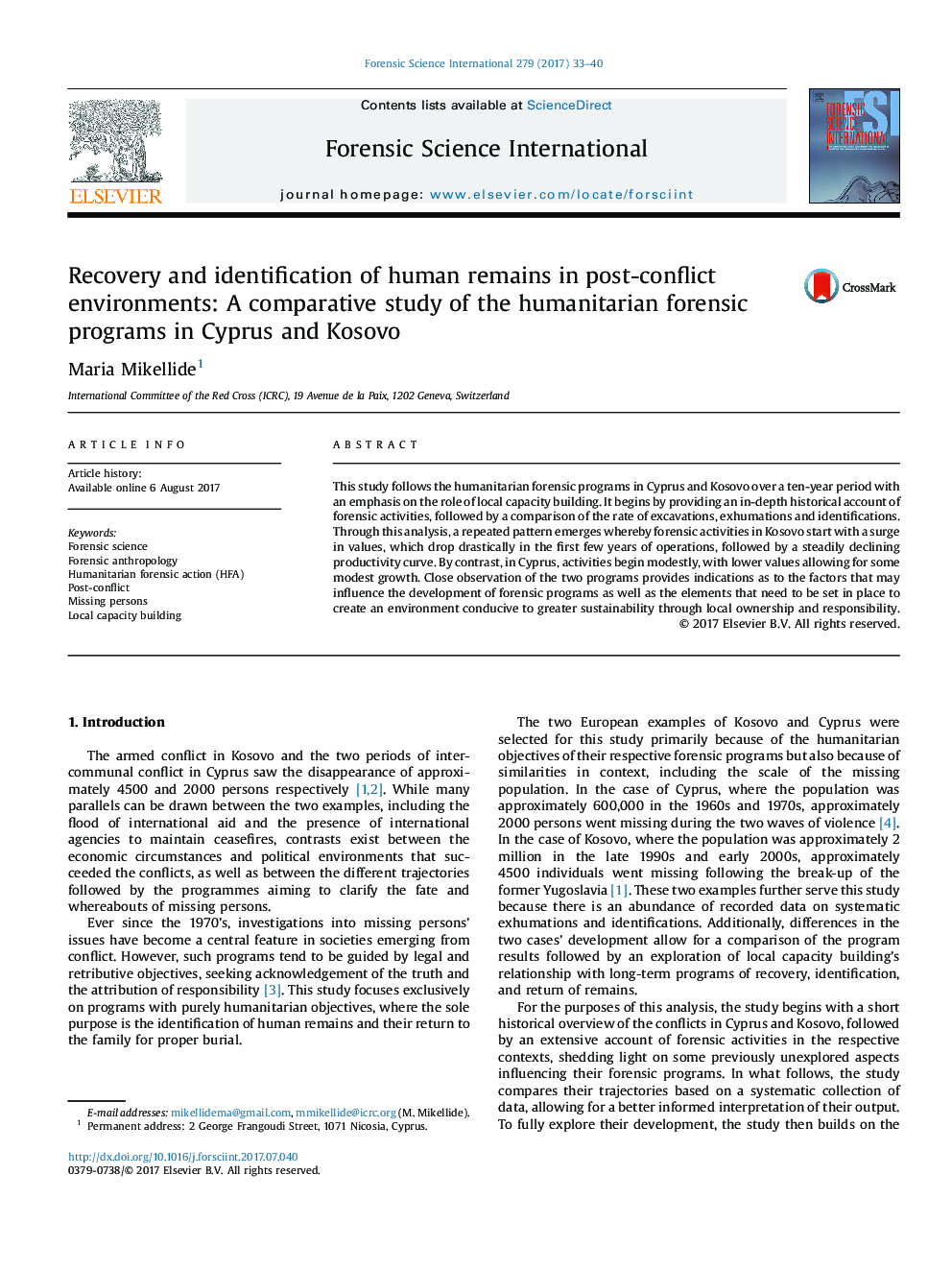| Article ID | Journal | Published Year | Pages | File Type |
|---|---|---|---|---|
| 6462164 | Forensic Science International | 2017 | 8 Pages |
â¢Humanitarian Forensic Programs in Cyprus and Kosovo reveal disparate trajectories.â¢Forensic programs face growing difficulties in locating graves with the accrual of time.â¢Building local forensic capacity contributes towards greater sustainability.â¢Building local forensic capacity strengthens the response to challenges.â¢Reflecting on lessons-learned helps inform strategies for future forensic programs.
This study follows the humanitarian forensic programs in Cyprus and Kosovo over a ten-year period with an emphasis on the role of local capacity building. It begins by providing an in-depth historical account of forensic activities, followed by a comparison of the rate of excavations, exhumations and identifications. Through this analysis, a repeated pattern emerges whereby forensic activities in Kosovo start with a surge in values, which drop drastically in the first few years of operations, followed by a steadily declining productivity curve. By contrast, in Cyprus, activities begin modestly, with lower values allowing for some modest growth. Close observation of the two programs provides indications as to the factors that may influence the development of forensic programs as well as the elements that need to be set in place to create an environment conducive to greater sustainability through local ownership and responsibility.
